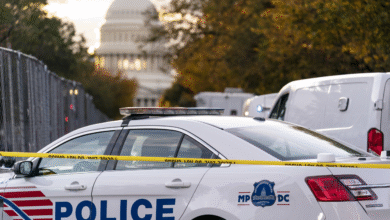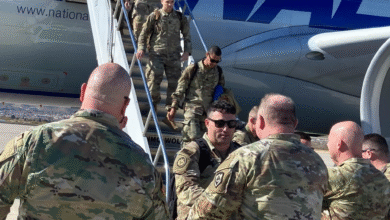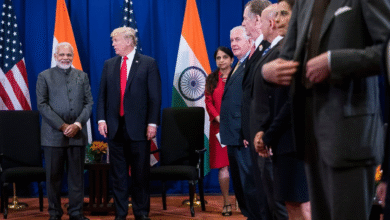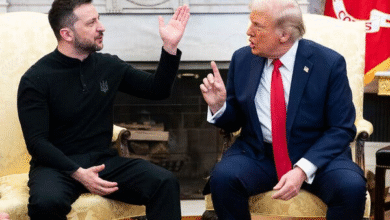Article 5-Like Security Guarantees for Ukraine Explained
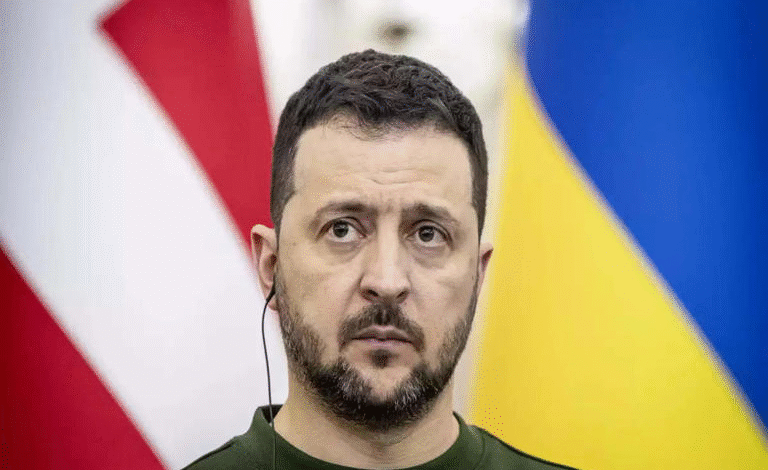
In a pivotal moment for Eastern Europe, recent statements from U.S. Special Envoy Steve Witkoff heralded a potential shift in the security landscape regarding Article 5-like security guarantees for Ukraine. Following President Donald Trump’s meeting with Russian President Vladimir Putin, it was revealed that Russia has tentatively agreed to allow the U.S. and its allies to extend protections resembling those outlined in NATO’s Article 5. This development is crucial as it responds to Ukraine’s pressing desire for NATO membership amid the ongoing Russia-Ukraine conflict. The implications of such security guarantees could fundamentally alter NATO’s stance and Ukraine’s defense strategy, opening doors to a more stable regional power balance. As discussions progress, global attention turns to how these commitments will influence future negotiations and the broader security architecture in the region.
The recent dialogue surrounding Ukraine’s defense has brought forth discussions about enhanced security provisions, often likened to NATO’s Article 5 principles. In the wake of a significant Trump-Putin encounter, the United States is contemplating mechanisms that could offer Ukraine a level of military assurance akin to what NATO allies receive. As the geopolitical landscape continues to evolve, the potential for Ukraine to cement its security aligns with its aspirations for deeper integration into Western alliances. This emerging narrative points to a recalibrated approach in the Russia-Ukraine rivalry, fostering hopes for a lasting resolution. The focus is firmly on how these security safeguards can reshape the strategic calculus for Ukraine and its allies in this fraught context.
Understanding Article 5-Like Security Guarantees for Ukraine
In recent discussions surrounding security guarantees for Ukraine, the term “Article 5-like” has emerged prominently. This phrase pertains to NATO’s Article 5, which ensures collective defense among member states; if one ally is attacked, all are obligated to respond. Special Envoy Steve Witkoff revealed that Russia has tentatively agreed to allow the U.S. and its allies to offer similar protections to Ukraine, as the nation seeks NATO membership. This development highlights the intricate diplomatic negotiations occurring amidst the ongoing Russia-Ukraine conflict, emphasizing the need for strong international commitments to ensure Ukraine’s sovereignty and territorial integrity.
The implications of these Article 5-like security guarantees extend beyond mere rhetoric. Such assurances could significantly bolster Ukraine’s defense posture against Russian aggression, providing a counterweight to Moscow’s military strategies in the region. Ukrainian officials, backed by Western leaders, see this agreement as a crucial step toward integrating Ukraine more deeply into NATO. As the situation unfolds, the discourse surrounding security guarantees will likely become central to future talks regarding Ukraine’s defense strategy and geopolitical alliances.
The Impact of Trump’s Meeting with Putin on Ukraine’s Security
The recent meeting between President Donald Trump and Russian President Vladimir Putin has raised eyebrows regarding the U.S. approach to the ongoing conflict in Ukraine. Witkoff’s announcement of ‘Article 5-like’ security guarantees marks a notable concession from Russia, yet it leaves many questions about the true extent of commitment to Ukraine’s defense. The ambiguity surrounding the details of these guarantees raises concerns, as the effectiveness of such agreements lies in their implementation and the actual geopolitical will to support Ukraine against ongoing threats from Russia.
Critics argue that while the acknowledgment of security guarantees is a step forward, it may not translate into immediate protection for Ukraine. The timing of Trump’s meeting, coupled with his previous emphasis on direct dialogue with Putin, has generated anxiety among Ukraine and its allies. Observers note the balance of power in Eastern Europe may hinge on the credibility of these guarantees and how they are perceived by both NATO members and Russia. Future discussions will be crucial in determining the viability of these commitments and how they shape the broader narrative of the Russia-Ukraine conflict.
NATO Article 5: Its Relevance to Ukraine’s Ongoing Struggles
NATO’s Article 5 remains a cornerstone of the alliance’s defense strategy, emphasizing collective security among member nations. In light of the persisting Russia-Ukraine conflict, the relevance of this principle is front and center in discussions about Ukraine’s place within NATO. Witkoff’s remarks on ‘Article 5-like’ guarantees highlight the recognition of Ukraine’s dire security needs as it seeks to fend off aggression. The shifting dynamics between global powers have necessitated a reevaluation of what security means in the context of Ukraine’s aspirations for NATO membership and the ongoing military threat from Russia.
Understanding NATO’s Article 5 framework is essential for grasping why Ukraine is so intent on joining the alliance. Such membership would not only enhance Ukraine’s defense capabilities but would also symbolize a commitment from key international players to stand united against external threats. The conversations between U.S. and Russian leaders may signal a potential path forward: one that prioritizes intensified support for Ukraine and a multilayered approach to its security challenges. As these diplomatic efforts progress, the global community watches closely, hoping for a resolution that can bring lasting peace and stability to the region.
The Role of European Leaders in Ukraine’s Security Guarantees
European leaders are playing a critical role in shaping the security guarantees offered to Ukraine, particularly in the context of the recent discussions involving the U.S. and Russia. European Commission President Ursula von der Leyen has expressed her strong support for enhanced security measures, emphasizing the European Union’s commitment to standing by Ukraine during these turbulent times. Such endorsements reinforce the notion that Ukraine’s defense is not solely an issue for the U.S. but a shared concern among European nations that have their own security stakes in the region.
The collaboration between the U.S. and Europe in providing security guarantees reflects a broader strategy to deter further Russian advances and reaffirm commitments to collective defense. As discussions progress on how to operationalize these ‘Article 5-like’ assurances, European nations are likely to mobilize resources and military aid in support of Ukraine. The interconnectedness of the security landscape in Europe mandates that unity among Western allies is maintained, particularly at a time when tensions with Russia continue to escalate.
Future Prospects for Ukraine’s NATO Membership
The pursuit of NATO membership by Ukraine represents a significant shift in the region’s security architecture. Given the evolving security landscape, its quest for NATO membership has accelerated, underscored by the ongoing conflict with Russia. The assurances of ‘Article 5-like’ protection, as articulated by Envoy Witkoff, may pave the way for Ukraine’s eventual integration into the alliance, although the timeline for such inclusion remains uncertain. Factors influencing this process include diplomatic negotiations, military reforms within Ukraine, and the geopolitical ramifications of the Russia-Ukraine conflict.
Ukraine’s NATO aspirations garner support from various quarters, including its neighboring countries and Western powers. However, the journey towards membership is fraught with challenges, not least the need for comprehensive reforms within Ukraine and the delicate balance of reactions from Russia. The potential for Ukraine to receive Article 5-like guarantees suggests a shift toward more robust defense commitments that could not only accelerate Ukraine’s path but also strategically realign NATO’s defenses in Eastern Europe against potential threats.
Bipartisan Support for Ukraine: A U.S. Perspective
In light of the ongoing conflict in Ukraine, there has been bipartisan support within the U.S. Congress to enhance security guarantees for the nation. This solidarity is essential as lawmakers recognize the significance of Ukraine’s stability in the larger framework of European security. With the promises of ‘Article 5-like’ guarantees emerging from high-level discussions between U.S. and Russian leaders, the need for a unified strategy is more critical than ever. The involvement of U.S. diplomacy can serve as a powerful signal to allies and adversaries alike regarding America’s commitment to defending democratic values and supporting Ukraine’s sovereignty.
As the situation unfolds, the willingness of both political parties in the U.S. to engage in discussions about military aid and strategic support for Ukraine demonstrates a growing understanding of the geopolitical stakes. The potential for NATO integration not only aligns with U.S. foreign policy objectives but also reinforces the idea that a strong, united front against aggression is paramount. Short-term and long-term strategies need to be developed to ensure that Ukraine receives the necessary backing, fostering an environment where diplomatic solutions can be pursued alongside military readiness.
The Importance of Ceasefire Talks in Ukraine’s Recovery
Ceasefire talks are essential to recovering from sustained conflict, as they create pathways for diplomatic resolutions. As President Trump has emphasized, the best way to resolve the war in Ukraine is through a Peace Agreement, which involves ongoing negotiations with Russian leadership. A peaceful settlement would not only aim to halt violence but also foster conditions for rebuilding Ukraine. The inclusion of ‘Article 5-like’ security guarantees could act as a stabilizer during these discussions, providing assurances that Ukraine’s sovereignty will be respected and protected as peace negotiations progress.
Moreover, the international community plays a pivotal role in pushing for ceasefire talks and mediating between Ukraine and Russia. By demonstrating an investment in Ukraine’s future through security guarantees, Western nations can exert pressure on both sides to prioritize dialogue over continued conflict. The hope is that with credible security assurances, Ukraine can engage in meaningful discussions with Russia, ultimately leading to a cessation of hostilities and the establishment of a durable peace framework.
Public Sentiment in Ukraine Amid Ongoing Conflict
The public sentiment in Ukraine amid the ongoing conflict with Russia reflects a complex mixture of resilience and anxiety. Many citizens express hope for increased support from the international community, particularly with the discussions surrounding potential NATO membership and security guarantees. Awareness of geopolitical dynamics, such as Trump’s recent engagement with Putin, shapes public expectations regarding the future. Ukrainians are closely watching how promises of ‘Article 5-like’ protections are realized and whether they will translate into tangible support.
In this atmosphere, the desire for reassurance is palpable. The Ukrainian populace seeks both military assistance and diplomatic recognition of their sovereignty. Public opinion remains largely supportive of aligning more closely with NATO, viewing membership not merely as a safeguard against aggression but as a symbol of their commitment to democratic values. Understanding this sentiment is crucial for policymakers as they navigate the complexities of security guarantees and responses to the ongoing Russia-Ukraine conflict.
Potential Challenges to Implementing Security Guarantees for Ukraine
While the mention of ‘Article 5-like’ security guarantees signals a commitment to supporting Ukraine, implementing such measures may face significant challenges. The intricacies of international law, the diplomatic relations between NATO countries and Russia, and the logistical realities of military support present potential hurdles. As seen in past conflicts, establishing clear and actionable security guarantees necessitates a roundtable agreement that all parties can adhere to, a component that could be difficult to achieve amidst persistent tensions.
Moreover, the political climate both within Ukraine and among NATO allies can influence the willingness to commit resources towards these guarantees. Diverging perspectives on the threat level posed by Russia and national interests can complicate unified support. Thus, it will be essential for leaders to not only articulate these security guarantees but also deliver on them consistently to maintain credibility and international unity, as well as to reassure Ukraine of their commitment to its defense.
Frequently Asked Questions
What does ‘Article 5-like’ security guarantees for Ukraine mean?
‘Article 5-like’ security guarantees for Ukraine refer to commitments from NATO allies to defend Ukraine in a manner similar to NATO’s Article 5, which states that an armed attack against one member is considered an attack against all. This assurance aims to bolster Ukraine’s defense against aggression, particularly from Russia.
How do security guarantees for Ukraine impact its NATO membership aspirations?
Security guarantees for Ukraine are critical as they meet a key factor in Ukraine’s NATO membership aspirations. By securing ‘Article 5-like’ commitments, Ukraine could gain essential support against the Russia Ukraine conflict, thereby reinforcing its case for full NATO membership.
What was the significance of the Trump-Putin meeting regarding Ukraine’s security?
The Trump-Putin meeting was significant as it led to a preliminary agreement where Russia acknowledged the possibility of ‘Article 5-like’ security guarantees for Ukraine. This concession represents a potential shift in the diplomatic landscape, indicating a willingness to discuss security arrangements that could benefit Ukraine amidst the ongoing conflict.
What does NATO Article 5 entail and how is it relevant to Ukraine?
NATO Article 5 states that if any NATO member is attacked, all members will respond to aid that nation. This principle is relevant to Ukraine as it seeks similar protections through ‘Article 5-like’ guarantees, aimed at deterring Russian aggression and providing a safety net for its national security.
What are European allies’ roles in providing security guarantees for Ukraine?
European allies have expressed readiness to participate in offering security guarantees for Ukraine, supporting the U.S. stance of providing ‘Article 5-like’ protection. This collective effort is crucial in establishing a united front against the Russia Ukraine conflict, enhancing Ukraine’s security framework.
Are ‘Article 5-like’ guarantees sufficient for Ukraine’s defense needs?
While ‘Article 5-like’ guarantees represent substantial support, their effectiveness in addressing Ukraine’s defense needs depends on the commitment and response of NATO allies in the event of aggression. Continuous diplomatic efforts are necessary to ensure these guarantees translate into actionable security for Ukraine.
What potential outcomes could arise from the discussions on Ukraine’s security guarantees?
The discussions surrounding ‘Article 5-like’ security guarantees for Ukraine could lead to enhanced military support and strategic partnerships, potentially resulting in a more stable security environment for Ukraine. Successful negotiations could also foster successful peace talks to address the ongoing conflict.
| Key Points | Details |
|---|---|
| Meeting Outcome | U.S. Special Envoy Steve Witkoff states that Russia agreed to offer ‘Article 5-like’ security guarantees for Ukraine. |
| Purpose of Security Guarantees | These guarantees are a critical factor for Ukraine’s desire to join NATO. |
| NATO Article 5 | NATO Article 5 states that an armed attack against one Ally is an attack against all members, prompting collective defense. |
| International Response | European Commission President Ursula von der Leyen supports the security guarantees, affirming the EU’s readiness to help Ukraine. |
| Future Meetings | Trump is set to meet with Ukrainian President Zelenskyy and European leaders to discuss the ongoing war and security guarantees. |
Summary
Article 5-like security guarantees for Ukraine emerged as a pivotal topic during recent discussions between U.S. officials and Russian leadership. Special Envoy Steve Witkoff highlighted that Russia’s willingness to entertain these security assurances marks a significant shift in diplomatic negotiations concerning Ukraine’s territorial integrity and NATO membership aspirations. As the international community highlights the necessity for strengthened defense protocols, the implications of such guarantees could be profound in establishing peace and stability in the region. The upcoming meetings between U.S. and Ukrainian leaders will be crucial in solidifying these commitments and addressing ongoing conflicts.

